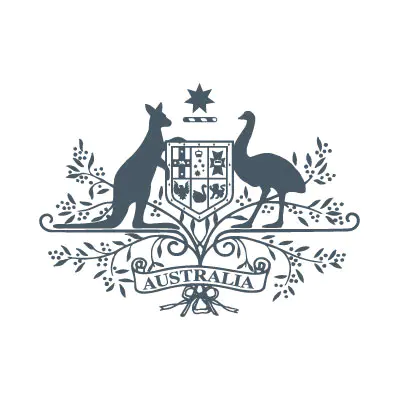
Press Conference – Phnom Penh, Cambodia
ANTHONY ALBANESE, PRIME MINISTER: Good afternoon. I was delighted to meet with President Biden here at the East Asia Summit today. We had a very constructive bilateral meeting with the President and his key national security and foreign affairs advisors, people I’ve developed quite a strong relationship with, some of them over a long period of time. Since I’ve been Prime Minister I’ve had the opportunity to meet with President Biden in Tokyo, in Madrid, in London and now here in Phnom Penh. We had a very constructive discussion. We discussed AUKUS. People would be aware that those issues are progressing the dialogue between Australia, the United Kingdom and the United States. And we talked about the importance of this agreement going forward, in particular, in the lead up to the Defence Strategic Review that will be handed down and then the decisions that we’ll make early next year. We talked about climate change, the importance of action on climate change and the link between it and economic growth and job creation, that this is a way forward not just for the United States and Australia but for the world. And climate change as a national security issue. I congratulated the President on his very successful invitation from Pacific leaders to the White House that occurred last month. And the feedback that we’ve had about that engagement that Australia and the United States are having with our Pacific neighbours has been very positive, with climate change front and centre are the issues in which they are concerned. We talked as well about regional security, we talked about Ukraine and we talked about supply chain issues as well and the impact that various global events are having on that. We discussed the Quad meeting that we will host next year. We will finalise the dates of the Quad leaders’ meeting and, if possible, I’ve invited the President to address a joint sitting of Parliament as well, if it can be worked out with his diary. Early today I spoke at both the ASEAN Global Dialogue and the East Asia Summit. There I conveyed Australia’s position that we are committed to working with our partners in the region on the issues that really matter: the issues of regional security and peace, the issues of prosperity, but also ensuring that any growth is inclusive, that we take the populations and our responsibility seriously going forward. I reiterated our support for measures including climate change in the region, our support for the distribution of vaccines in the region as well. Both of those forums were very constructive in their engagement. Thirdly, and lastly, today we’ve reached a substantial conclusion on the ASEAN-Australia-New Zealand Free Trade Agreement. This is an agreement that has helped Australian business to gain access to the South East Asian market for the last 12 years. But this upgrade of the agreement will allow for more access for both goods but also for services in the region. Of course there are some final legal things to go through because they have to be approved by each of the parliaments, but the signing off of the agreement is a credit as well to the Trade Minister Don Farrell and the Assistant Trade Minister Tim Ayres, and I thank them for the work that they have undertaken. And I thank the ASEAN leaders for their participation in that constructive dialogue as well.
JOURNALIST: You spoke to Premier Li last night. Could you tell us what you spoke about? Was there anything of substance regarding your relationship? Did President Biden give you an insight of what he might be talking about with President Xi tomorrow?
PRIME MINISTER: I’ll leave President Biden to comment about what President Biden might talk about with President Xi, as you would expect. Last night I had a brief conversation with Premier Li. It was very positive. It was constructive. He reminded me that he had written to me congratulating me on my election and that I had responded to him. The main area of discussion we had was on the upcoming commemoration of the 50th year of Australia’s diplomatic relationship with China. That came about because of the election of the Whitlam Government on 2 December 1972. And then, the agreement was signed from Paris on 21 December of that year. It was a short engagement. It was constructive.
JOURNALIST: Do you see your conversation with the Premier as a precursor to a meeting with President Xi at the G20 later this week?
PRIME MINISTER: I saw it as a very positive engagement. It was polite. We were at the same dinner, and I engaged with a range of members before the dinner and during.
JOURNALIST: What significance do you attach to that discussion? You will seated near each other, it was hard not to talk to each other. Or should we read more into it given it’s really the first time a PM has spoken to a Chinese leader in three years?
PRIME MINISTER: It’s not up to me to do the commentating. It is what it what it is. I say that it was constructive. It was positive. I think it’s a good thing that it happened. I’ve said repeatedly about the relationship with China that we should cooperate where we can and that dialogue is always a good thing. Last night’s dialogue was very positive with Premier Li and I thank him for it.
JOURNALIST: You spoke to President Biden about AUKUS. Indonesia just told delegates here that they don’t want to get caught between two powers. And they’re also concerned about AUKUS. Have you raised AUKUS with any of your South East Asian colleagues?
PRIME MINISTER: Well, I spoke about AUKUS in my contributions today to the East Asia Summit. AUKUS is an important part of Australia’s defence relationships that we’ve established. It’s something that has bipartisan support in our Parliament.
JOURNALIST: President Biden says he wants to establish red lines in American relations with China. What are Australia’s red lines when it comes to Beijing?
PRIME MINISTER: President Biden can speak for himself. And I’ll speak for myself on the terms in which Australia engages.
JOURNALIST: Prime Minister, you spoke to President Biden for almost 40 minutes. Given how busy he is, how busy you are, how would you characterise the nature of those discussions? And do you think it’s significant that he sought this meeting for a protracted amount of time so close to his meeting with Xi Jinping tomorrow? Is Australia’s expertise on the region (inaudible)?
PRIME MINISTER: It was a really warm engagement. All of my engagement with President Biden has been engagement between friends. I think we relate to each other pretty well. We come from similar backgrounds. He’s pointed out in the past that we’re both Catholic working class people who lead our party and now have the great honour of leading our respective countries. The United States and President Biden in particular welcomes Australia’s position in the region. Australia, of course, has been engaged under my Prime Ministership in the Indo-Pacific region. Penny Wong as Foreign Minister has had more engagement in five months than others have had for a much longer period of time, in terms of her predecessors. And we are engaged constructively. I think that Australia’s standing in the region has risen and that is a benefit for all those who have respect for Australia’s position, and the United States is one of those.
JOURNALIST: How would you rate the chances of a joint communique in the G20? Can you give us any insight to how that’s going?
PRIME MINISTER: That dialogue is continuing between officials. You know the way that these conferences work. We’ve just got through an East Asia Summit, an ASEAN meeting and a range of other summits. So we’ll wait and see what happens. But I go into the G20 with a great deal of confidence. And I do want to congratulate President Widodo on the work that he has done. I have had long discussions with President Widodo here. He’s quite rightly proud of Indonesia’s role in hosting the G20. It’s an important moment for Indonesia.
JOURNALIST: Prime Minister, we could see you making your interventions today but we couldn’t hear you. So for the benefit of the Australian people, we know that Sergey Lavrov, the Russian Foreign Minister, was in the room when you made reference to the Ukraine invasion. What did you say regarding the Foreign Minister of Russia?
PRIME MINISTER: Well, I didn’t miss him. I pointed out that Russia’s actions were causing an enormous human toll, that it was an illegal invasion that was having an impact on the people of Ukraine, but also it was a breach of the international rule of law. And that it was having economic consequences and rising costs of inflation, energy prices throughout the world. And I condemned the invasion, as you would expect. My comments in the room with him present were consistent with the comments that I’ve made publicly and privately over a long period of time since the invasion.
JOURNALIST: Just following up on AUKUS: after your intervention today, was there any reaction from the other leaders? Do you feel that Australia’s neighbours are now clear on what AUKUS is and what it isn’t?
PRIME MINISTER: We’re making clear what AUKUS represents, which is that it shouldn’t be of any great surprise that Australia has an alliance with the United States and an alliance with the United Kingdom. They’re not things that were initiated by my Government or by my predecessors. They are relationships that go back a long period of time. And what we are doing is cooperating in a constructive way, consistent with Australia’s obligations under the NPT.
JOURNALIST: With Xi’s meeting tomorrow with President Biden and a possible meeting with you, do you get a sense that China is trying to recalibrate its position, that it is time to shift the way that it is relating with other countries?
PRIME MINISTER: We will engage constructively with dialogue with countries that wish to engage with us. And I’ve said that we should cooperate with China where we can and that’s what we’re doing.
JOURNALIST: President Biden said he was going to gauge what Japan might like him to raise with President Xi tomorrow. Did he do the same with you when you met today?
PRIME MINISTER: It’s unlikely that I would come to a press conference and disclose the details of the private discussions that I’ve had with President Biden. We have a good relationship. The way that you keep good relationships is to treat people with respect and I treat the President of the United States with the respect that that high office deserves.


